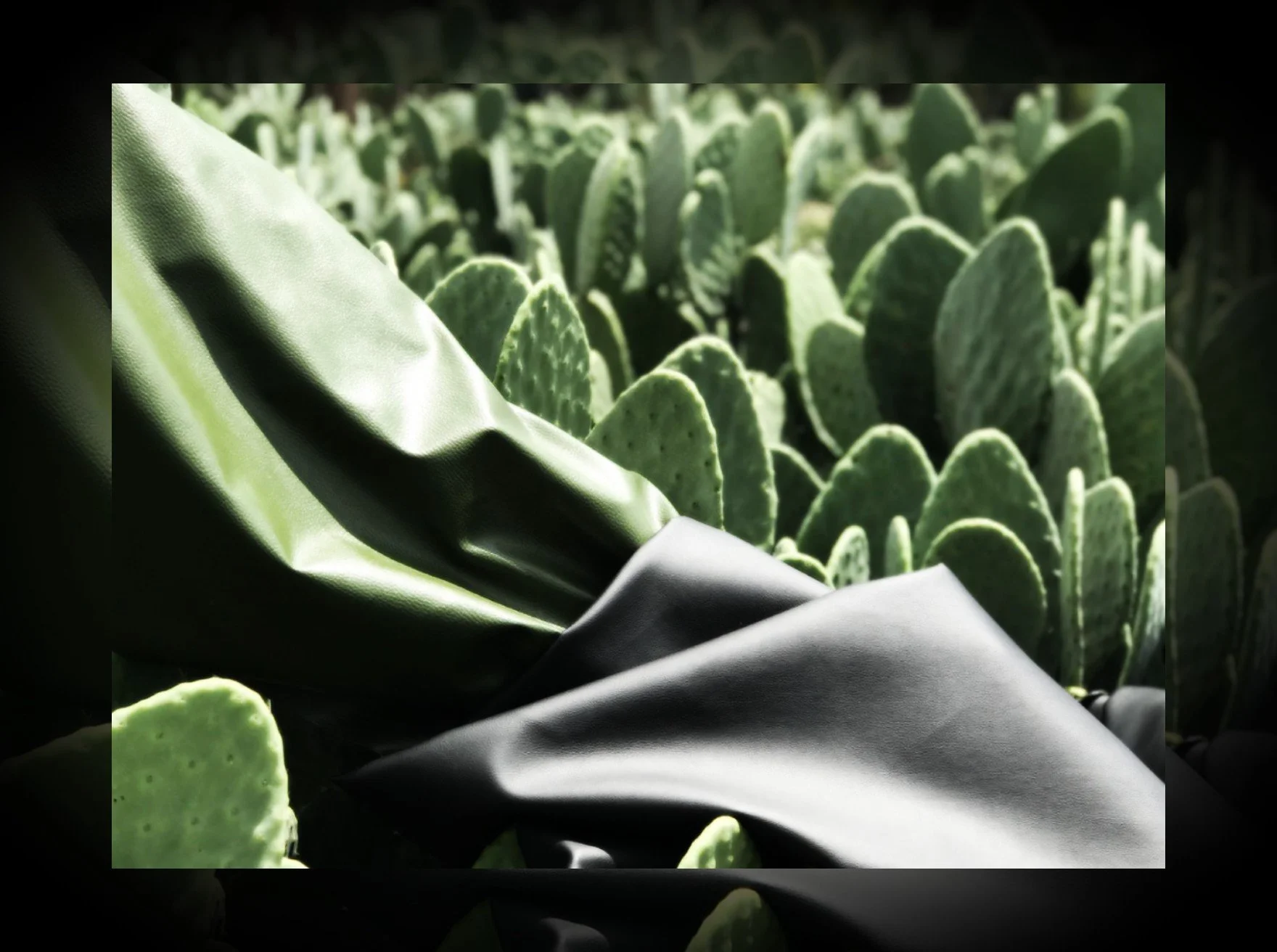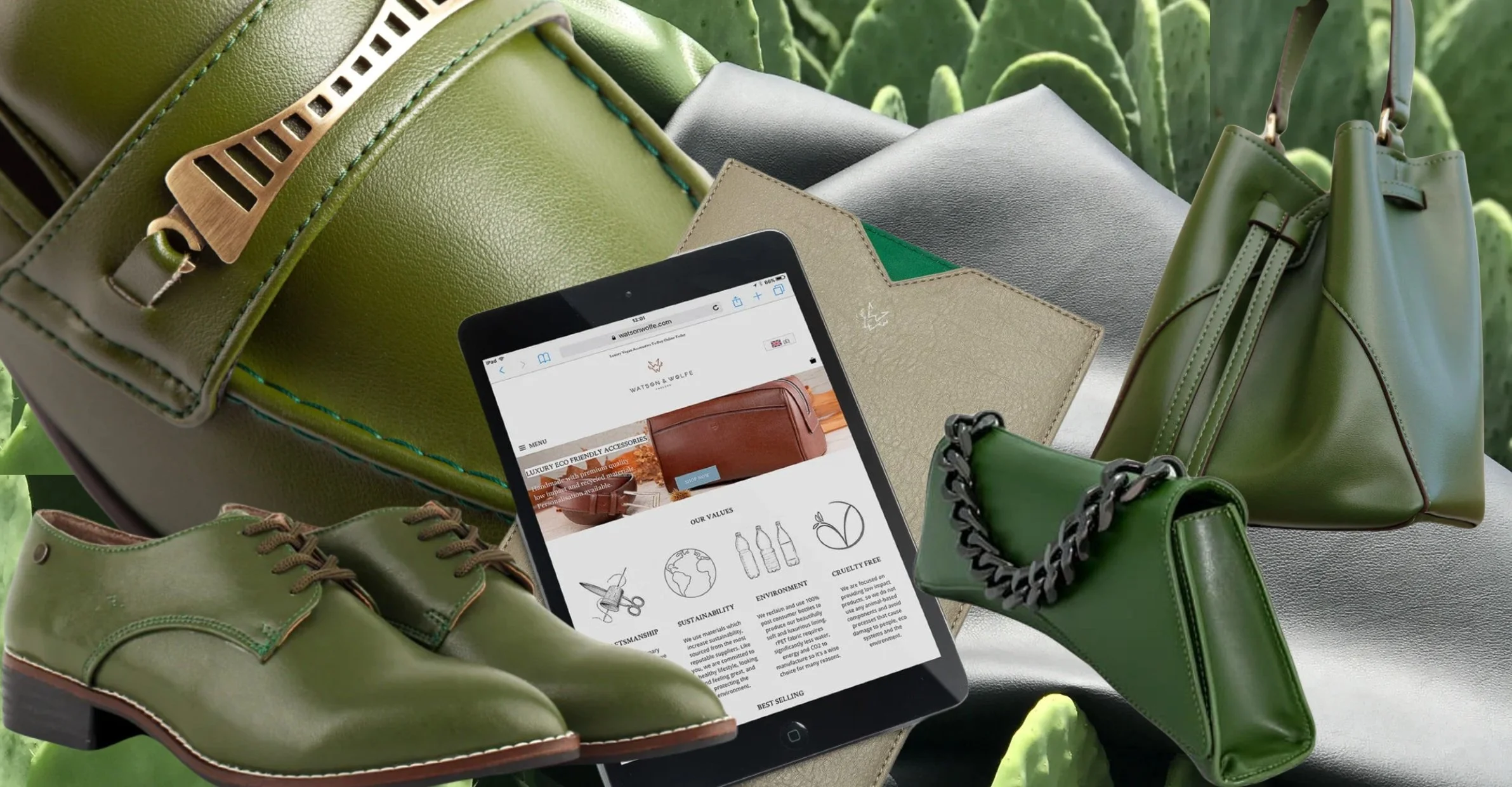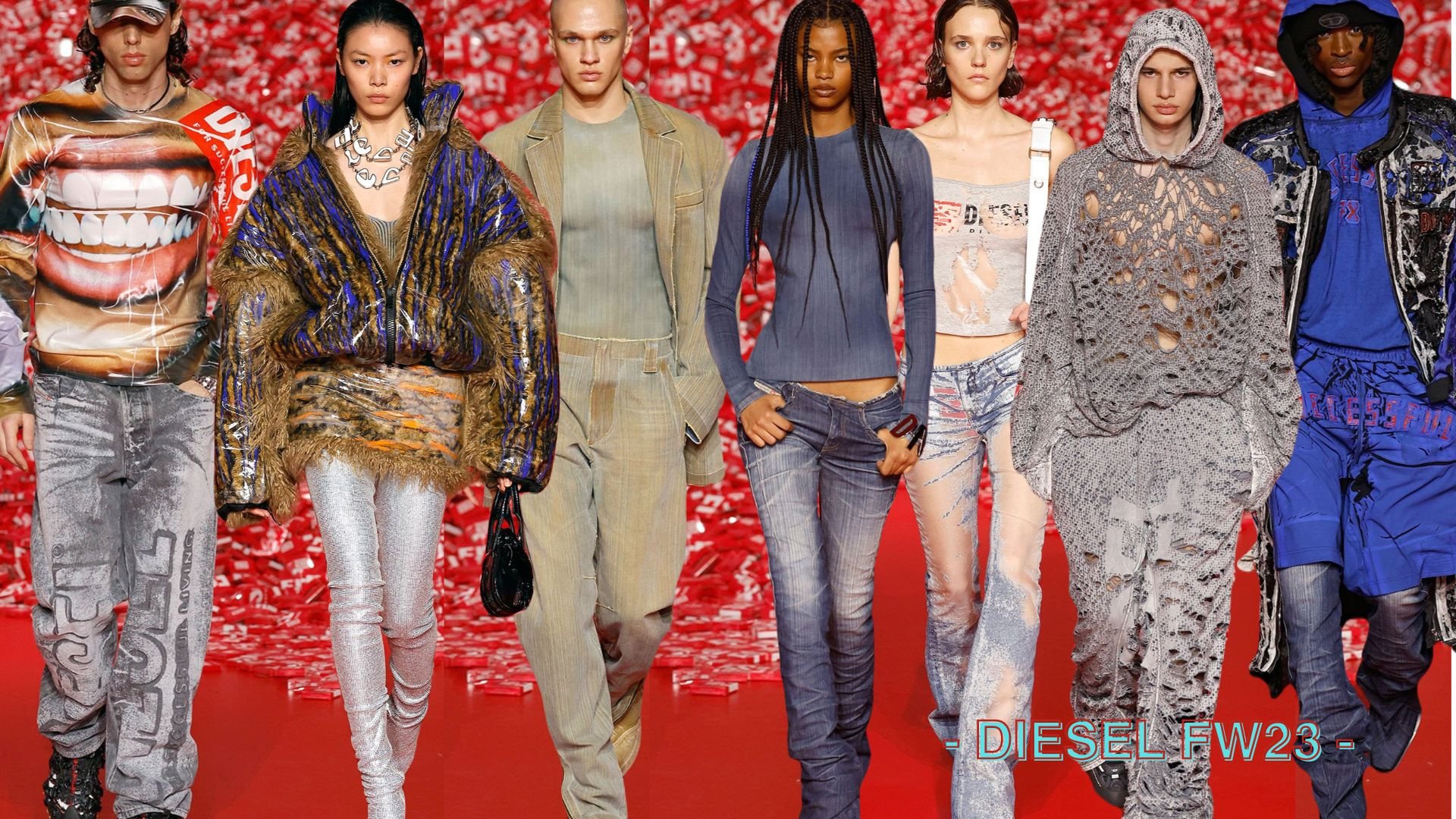Mexico is home to one of the latest sustainable textile innovations - Cactus Leather. Thanks to its semi-arid climate, the country has an abundance of cactus growing. The fast-growing plant doesn’t need water irrigation, nor do its farms use any pesticides. It is a resilient plant that can withstand drought and scorching temperatures. Cactus manages to thrive despite the adverse effects and challenging conditions resulting from climate change. It’s quite adaptable and can sequester carbon into the soil keeping the growing areas fertile. Thus the production of cactus leather makes a significantly lower impact on the environment compared to conventional leather and PVC-based alternatives.
Located in the State of Zacatecas, DESSERTO naturally grows cacti on a 14-acre farm. It is the sole cultivator and manufacturer of this unique cactus leather. Providing sustainability throughout the entire value chain of its product production. USDA-certified, organic cactus is grown there on the grounds of the company, and it is watered only with rainwater. The cactus crops are sustainable for several reasons, including but not limited to access to raw materials, energy-efficient sun drying of the cactus, soil regeneration, and CO2 sequestering capacity.
Focus on NOPAL - The Process
Only the mature leaves of the NOPAL (prickly pear) cactus are harvested, which occurs twice a year (thanks to the plentifulness of the crops). The pads are cleaned, smashed, and left out in the sun to dry for nearly a week. Once dried, the cacti fibers go through a process that extracts a powdered protein, which is eventually mixed with the organic dyes to form a liquid bio-resin formula. And this formula, when combined with a carrier material, forms Cactus leather. There is dried mulch that remains as "waste" from the process, and it’s mostly used as animal feed, but it can be used in other ways such as dietary supplements and to brew beer.
DESSERTO proudly provides plant-based biomaterials as an alternative to animal leathers, that are made from organic renewable compounds. The company is also a USDA Certified Biobased Product, and is V-Label Certified (providing cruelty-free vegan materials).
As for now, the Founders only provide cactus leather as the final product for designers to create their own designs using the plant-based product. However, they are entrusting the resources, responsible innovation, creativity, and financial investments of the fashion industry to bring awareness to all, and eventually rectify its harmful global impact. In efforts to make a broader impact, DESSERTO has teamed up with forward-thinking brands beyond fashion such as Hublot & Mercedes Benz, who have used the bio-material alternative leather as an eco-friendly, cruelty-free solution for their products.




